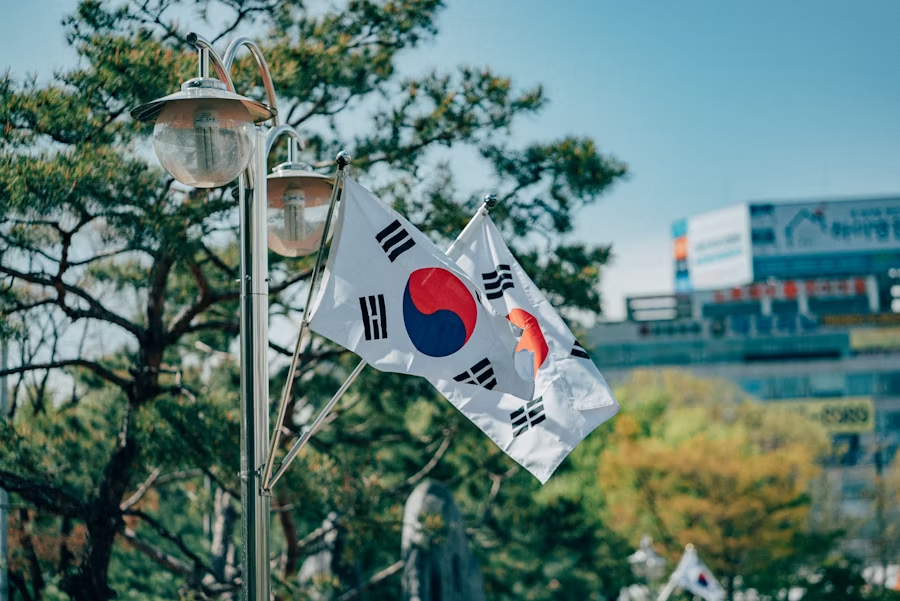On December 3, 2024, South Korean President Yoon Seok Yeol declared martial law, causing widespread panic throughout the nation. His declaration was made in order to protect the country from supposed North Korean sentiments from opposition parties. However, it was reversed within six hours due to public backlash and soon after, citizens pushed for the impeachment of Yeol. The nation suffered from a long history of dictatorships and autocratic regimes, hence why South Korean citizens do not take their democracy for granted. This recent crisis in South Korea can raise concerns about democratic erosion as it displays how executive aggrandizement is on the rise and the possible resurgence of authoritarianism. Through the ideas of democratic backsliding, executive aggrandizement, and the fragility of institutions, it can be argued that South Korea’s martial law order served as a threat to democracy rather than the protection of it.
Democratic backsliding can be defined uniquely in a modern lens: a gradual weakening of democratic norms and institutions through legal methods, rather than traditional military coups or violent takeovers. In the case of Yeol, martial law was declared at the expense of the legislative and judicial branches. Instead, power was consolidated under the executive branch in order to suppress opposing forces. While it was legal, this act signals a step away from democracy since executive aggrandizement was present. Yeol expanded his authority by restricting the press, placing military intervention in civic areas, and suspending political activities. It is concerning in Yeol’s case as martial law can grant the president unchecked authority, with orders from the executive branch disguised as a protection to national security. Moreover, marital law can be viewed as stealth authoritarianism in the case of Yeol. While it may seem like democracy is in order, governments can use legal methods and existing frameworks to mask their authoritarian-like actions, disguising its effect on democracy and consolidating power. In South Korea, Yeol attempted to maintain a democratic appearance while restricting civil liberties.
Democracies like South Korea may be well established, but are still prone to democratic backsliding and gradual erosion. In regards to informal democratic norms, such as mutual tolerance and institutional forbearance, it is important to understand that even unwritten rules like these play a role in safeguarding democracy. Another significant factor includes the protection of pluralism. Democracies require competitive elections in order to function as a polyarchy, and if these safeguards are not present due to martial law, the threat of a competitive authoritarian regime exists. In this case, elections would continue to occur, but with a larger favor towards the ruling party since they hold more power at the time and can tilt opinions towards their side.
Martial law in South Korea should be viewed as a lesson to democracy for other countries. South Korea has a strong civic body with a history of public mobilization, which can be credited for preventing a full breakdown of democracy. Democracy is fragile and the risk of authoritarian backsliding is constantly present. Although it may not be immediately apparent, democracies can eventually gradually collapse over time. At the same time, having a prompt response to these crises through the civic body and legislature can serve well in maintaining a strong democracy, as seen in South Korea.

Hi! Your analysis of President Yoon’s declaration of martial law is both insightful and concerning. The incident, though short-lived, underscores how fragile democratic systems can be, even in countries like South Korea with strong civic traditions and a painful historical memory of authoritarianism. You frame it right as an example of executive aggrandizement, where power is legally, but dangerously, concentrated in the executive branch under the guise of national security. Although technically legal, Yeol’s imposition of martial law to suppress dissent and halt political activity seriously undermined democratic principles by weakening civil liberties and upsetting the balance of power, which is alarming. Lastly, your essay is a reminder that democracy is not self-sustaining, rather it requires vigilance, active public participation, and strong institutional checks. The fact that South Korea avoided full democratic breakdown is a testament to its engaged citizenry, but it should serve as a warning rather than a reassurance.